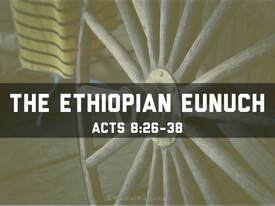
 Giovanni di Paolo, “St. John the Baptist in Prison Visited by Two Disciples,” ca. 1455-1460 (photo: Public Domain) Giovanni di Paolo, “St. John the Baptist in Prison Visited by Two Disciples,” ca. 1455-1460 (photo: Public Domain) Try as I might, I have always found John the Baptist to be an off-putting, and certainly a disturbing, figure in the Christian story. And I have tried. For I was ordained deacon in St John at Hackney, a church named after John the Baptist, and I served in the community there. Each year, we would have our patronal festival, and try to find ways to see how the Baptist could relate to our usual church life. To be honest, it was easier than in the past. For St John at Hackney was originally a very high society church – indeed, the focal borough church in Hackney - and its impressive churchyard still contains many notable figures, such as the Baden Powell family, from whom the worldwide scouting movement issued. By the 1980s however, Hackney was both London’s poorest and most multicultural borough, and our congregation was very different; all part of the Anglican Church’s journey in the inner cities from being the church of ‘the great and the good’ to being one of the ‘marginal and the odd’. Over half of our congregation also drew their origins from West Africa or the West Indies. Well, maybe John the Baptist might have felt somewhat at home, being on the prophetic margins of his society. Yet his appearance and demeanour would still have marked him out. Indeed, even some of the more radical and vibrant of our congregation would have struggled with some of his language of repentance and its tone. Similarly, I suspect that we would not be wholly comfortable with him here. For John the Baptist was most certainly a ‘disturber of the peace’ in very uncomfortable ways. Indeed, the story of his violent death we heard this morning is hardly the most attractive within the Bible. So what do we make of it, and of the Baptist’s significance within our faith journey?...  Our lives and world are shaped by the stories we choose to tell, and how we tell them. That is one reason the study of history is so vital. For it makes a huge difference what we choose to include, remember, and carry forward in the story of ourselves we share. So what story about ourselves and our world do we want to tell, and to carry forward, on this 47th anniversary of the official founding of the Uniting Church in Australia? How does this reflect the vision of church as beloved community which we heard about in our readings (from Ephesians chapter 2.17-22 and John chapter 17.1-11)? And how, vitally, do we see this story developing in the future?  How do you feel about flying kites? In my view, there is something quite delightful about it, literally and metaphorically. If you love Mary Poppins, for example, you may remember that, in the sequel to P.L. Travers’ original book, Mary comes back on the end of a kite string. In Walt Disney’s film of 1964, kite flying is even more prominent. Together with the Sherman Brothers song ‘Let’s Go Fly a Kite’, it forms part of the conclusion as Mary’s work with the Banks’ family is completed. The song is sung. as the father, George, realises that his family is much more important than his financial job in the City of London. He mends his son’s kite and takes his family kite flying. Eventually all the film’s characters join in, and sing the song, even the forbidding crusty old men of the Stock Exchange. In that sense, kite flying is a delightful metaphor of transformation, both for individuals, families, and also for communities and the world as a whole. For the film’s ending invites us all to join in, and to sing: Oh, oh, oh! Let's go fly a kite Up to the highest height! Let's go fly a kite and send it soaring Up through the atmosphere Up where the air is clear … Oh, oh, oh! Let's go fly a kite For, like the mustard seed in our Gospel reading this morning, humble and fragile though it may be, the kite is a wonderful metaphor for a key to life and transformation…  Where, to what, and, perhaps most importantly of all, to whom do you, do we, belong? These are core questions at the heart of faith, and of life itself. Let me therefore begin with a little quiz question, to which those who know 1980s popular music may be able to respond. Who sang the following words? If it helps, think of it sung falsetto by a redheaded young man: You leave in the morning with everything you own in a little black case Alone on a platform, the wind and the rain on a sad and lonely face Mother will never understand why you had to leave But the answers you seek will never be found at home The love that you need will never be found at home The song is Smalltown Boy, sung by Jimmy Somerville, from the British synth-pop band Bronski Beat’s album Age of Consent. It came out in 1984, at the height of Margaret Thatcher’s political power, and, for folk like me – not least small town kids like me – it was emblematic both of protest against oppression and of the creative, joyous, expression of queer courage and change. Indeed, among other things, Bronski Beat also headlined ‘Pits and Perverts’, a concert in London’s Electric Ballroom to raise funds for the Lesbians and Gays support the Miners campaign: an event featured in the film Pride. Smalltown Boy also reached number 8 in the Australian charts and it is but one symbol of the historical struggle which has led, finally this week, to a formal apology from the New South Wales government for the horrendous abuse and violence that has been inflicted on queer people, and not least on gay young men who were told, in no uncertain terms, that they did not belong. Yes, let us celebrate that! Today Smalltown Boy is a celebration of what was largely still a declaration not to be crushed, but to survive, and thrive. For as Jimmy Somerville sang: Pushed around and kicked around, always a lonely boy You were the one that they'd talk about around town as they put you down And as hard as they would try they'd hurt to make you cry But you never cried to them, just to your soul No, you never cried to them, just to your soul Soul power eh? As Jesus, another smalltown kid, taught, and showed, this is ultimately at the heart of any life-giving change. For it is where we find our true belonging…  The writings of Paul tend to get a bad rap in progressive Christian circles. He gets the blame for the subjugation of women, the rejection of queer people and the affirmation of slavery. He is seen as a conservatising force, taking the early church away from the radical message of Jesus and turning that message into something more palatable to conservative Roman culture and thus enabling its spread. Some of that critique is certainly appropriate to the second century writings, such as the pastoral epistles of Timothy and Titus ascribed to Paul by much later writers. However, parts of Paul’s writings reveal a radical thinker, capable of reframing the reforming Judaism of his upbringing into an entirely new faith – a faith moreover informed by his own experiences of persecution and imprisonment. Today’s passage invites Paul’s readers to a number of fresh perspectives on God, creation, and the purpose of life, that continue to challenge our own thinking today. Let’s look at some of it a little more closely...  ‘Do you understand what you are reading?’ Philip’s question in Acts of the Apostles chapter 8 is such a great one, and it echoes down the centuries. Do we understand what we are reading when we read scripture? Whether we are conservative or varying degrees of liberal, it is easy to think we do. But do we really? This question is one reason that we have a sermon, or homily, or, as this community likes to call it, a reflection, in worship. For, as the eunuch responds, how can we understand unless we have a guide? The alternative is just using scripture as a looking glass, reflecting only our own faces, hopes, fears, and presuppositions. Note well, a guide to scripture is not a simple giver of answers, and certainly not determinative for all times and places. For we continue to reflect on scripture, again and again, precisely because God’s living Word, capital ‘W’, is revealed in scripture but is not fixed within its small ‘w’ words. Rather, as the great biblical interpreters have always said, God’s living Word emerges out of scripture in the encounter of human beings with the text, as guided by one another, our contexts and our deep Tradition, through the power of the Holy Spirit, the ultimate guide and inspirator. This is crucial to recall, lest we are tempted to believe that scripture is too easily understood: whether over-exalted into an idol or a supposed instruction manual, as conservatives are sometimes drawn to do; or reduced to a mere item of intellectual curiosity or piece of cultural heritage, as progressives are inclined to do. Either way, that loses the real subversive power of faith which scripture can hold for us, particularly in stories such as of the Ethiopian eunuch: which, in my view, is one of the most subversive of all in scripture, not least in its queering dimensions… Jesus is the good shepherd. Hopefully we all know that. Those of us who went to Sunday school learnt this in the first lesson often accompanied by a picture of a rather anaemic looking Jesus with flowing locks, cuddling a snowy white lamb who had clearly never done a day’s manual labour in their life! Is that right?...
 image: Kamala Bright on Unsplash image: Kamala Bright on Unsplash ‘Tell me the old, old story, when you have cause to fear.’ Yes? No? Maybe? How do you respond to that: and, more broadly, to faith, and God, in Jesus, as story? Many years ago, on the radio, one of the radical thinking clergy of the Church of England was asked about how they understood God. ‘God’, they said, ‘is the poem in which I live my life.’ Yes? No? Maybe? Does that resonate with you? Many people, secular and faith-based, would be quite dismissive. Stories, and poems not least, they would say, are typically fanciful and not factual, fabricated and too often false. Of course, that kind of response generally lacks self-awareness and is very narrow, and, often, quite ideological. Apart from not recognising that different expressions of life have their own characteristics and validity, they typically miss the way in which story, metaphor, and symbol, exist within all areas of knowledge. Science for example is full of different models, and ideas like evolution are themselves stories. Scientists are right in saying that life-giving stories are helped by empirical verification. Yet, without stories as such, it is impossible for human life and consciousness to exist. That is something that liberals and progressives, especially in faith spaces, have often missed. It is not enough to point out the weaknesses in a tired traditionalist story: whether that be about creation, sexuality, or anything else. Even more importantly, we also need to tell a new story. Populist politicians, like rabble-rousing religious preachers, know this well. Facts are malleable but stories, once established, persist: whether they are particular ways of understanding the body, the nation, the world, and, of course, God. All of us therefore have stories, conscious and unconscious, running through our heads: some of them planted there long ago, some of them picked up from the latest social media frenzy; some of them giving life-giving purpose to our lives, others providing scripts that limit us but which are hard to shake off. What then is our story?...  image: Brandy Martell, 400 block of 13th St near Frankland St, Oakland image: Brandy Martell, 400 block of 13th St near Frankland St, Oakland ‘Tell all the truth', wrote the poet Emily Dickenson, 'but tell it slant’. For ‘The Truth must dazzle gradually/Or every one be blind.’[1] That is pretty much Mark’s Gospel’s account of resurrection, isn’t it? Whilst other resurrection stories were attached later, the two earliest, and arguably the best, manuscripts of Mark’s Gospel stop abruptly at verse 8 of chapter 16, with women fleeing from an empty tomb and ‘saying nothing to anyone, for they were afraid.’ Furthermore, the text simply stops in mid-sentence, with the little preposition which means ‘for’. Mark’s Gospel, at least, is clear that resurrection is both truly astounding and impossible to convey straightforwardly. For how do we describe resurrection? How do we communicate resurrection? How do we live resurrection? The nature of resurrection is that it involves strange truths of transformation: which require, like so much great art, ‘telling it slant’; which rest on mystery; and which revolve around deep, lived, experience. For art, mystery, and experience: these three things are at the heart of the strange truths of resurrection we exult in today, as witnessed to by our readings and key images this morning, and the continuing life of you and I, and all who follow Christ… |
Authors
sermons and reflections from Penny Jones & Josephine Inkpin, a same gender married Anglican clergy couple serving with the Uniting Church in Sydney Archives
June 2024
Categories
All
|
 RSS Feed
RSS Feed